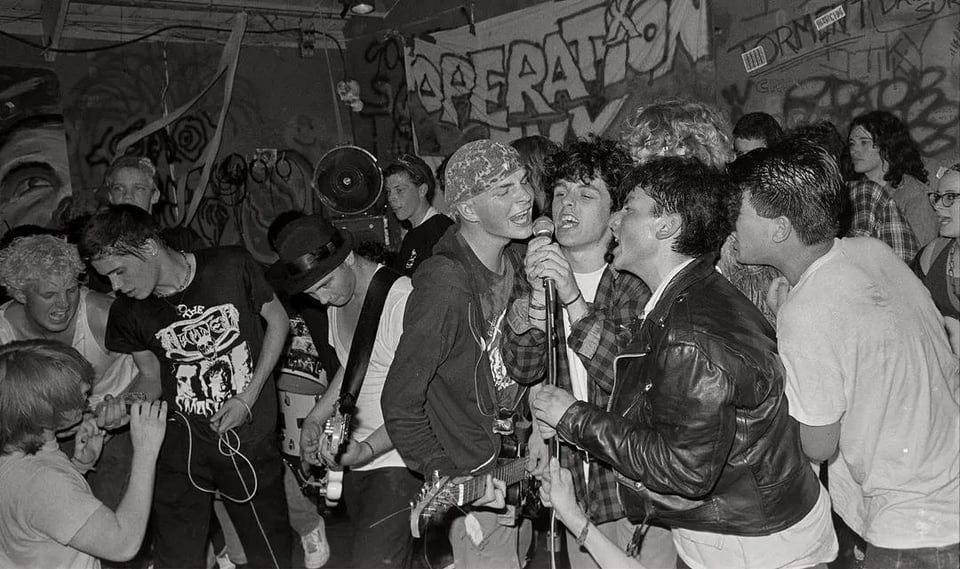Am I the victim of an international sushi scam, part 2: the thrilling conclusion
DNA tests. Concrete answers. And, as a bonus this week ... a scientific study of the 5-second-rule.
Hello Searchers,
Thank you for waiting seven days for the podcast event of the year decade. In the newsletter this week, we’ve got the episode and a bit of further reading if you’re curious. Plus, I share my reading list, try to make the phrase “drawering” a thing, and talk (without spoilers) about some upcoming stories.
The episode
Last week, we asked if a local New York City sushi restaurant was substituting escolar for tuna in some of its sushi rolls. Escolar, also known as the Ex-Lax-Fish, has a reputation for causing intense GI distress in those who consume more than a small amount of it.
In our previous episode, we learned about the world of fish fraud, aka seafood substitution. But today, we find out whether or not it’s happening in this one specific instance. Check it out:
This is our final episode of the year. We will be back in early January with the second half of our season, nineteen more episodes which we are currently hard at work on. You can always find our schedule here.
Further listening and reading
CDC - Current and Past Multistate Foodborne Outbreaks
FDA - Outbreaks of Foodborne Illness
Also, we have a correction in this week’s episode. We’ve edited the audio since broadcast, but if you listened first thing Friday morning, you’d hear me misspeak and say that that four Taco Bell Crunchwrap Supremes contain 4,800 grams of sodium. That would be something like ten pounds of sodium. They, in fact, contain 4,800 milligrams of sodium. Search Engine regrets the error.
A hot new trend in podcast editing called “drawering”
We started piloting this show in late February and early March. This two-part sushi investigation was one of the first stories on our list back then. It feels pretty cool to get to play it for you.
It also reminds me of something new we tried this year at Search Engine Industries.
There were a few stories that we reported and edited, got ninety percent of the way towards finishing, and then just … set aside for months or longer. “Drawered them,” I kept saying, meaning, “put the story in a drawer for awhile.” This was not an idiom that made sense to anybody, but maybe if I put it in the newsletter I can will it into existence.
I’ve never worked in a production process that drawered its stories. Either you publish, you kill it, or it sort of languishes in limbo because you’re stuck. But intentionally letting something sit? That was new to me. I really liked it though. There were a few stories that seemed to just benefit from sitting for awhile.
One of those was the amphetamine two-parter. There was a version of that piece that was done, fact-checked, had an arc. It just felt, to Search Engine’s editor, Sruthi, incomplete. She couldn’t totally articulate why, it was just her instinct. So we drawered it.
It didn’t publish for months, but in those months, we played our draft for some friends, got some new ideas, did even more research. And we ended up with a piece that I think was richer than what it would have been.
Drawering! It’s not something that’s always possible, and there’s no magic formula for knowing when to do it. But it’s something I’ll try to pay attention to next year.
My reading list + finding new stories to tell for 2024
We’re not publishing for the next three weeks. We’ll be working on getting some upcoming stories in shape. I don’t want to spoil anything, but I can tell you some of the topics – birds, cats, cannabis, an internet scam, a mystery involving chicken bones, Marvel Snap, German techno, and billionaires.
Those stories have some tape recorded and some writing written. Which is great, and it means the other priority I have for this month is to help generate ideas for the stories that might come after those.
I’m going to share my reading list below, in case anyone is curious. I’m always wondering about what’s on everybody’s else’s nightstands. (besides night water and medications).
I will say I’m reading more books at once than I’d normally like to. Some of that is that I’m reading with an eye for new ideas, some of it is I’ve just been more undisciplined than usual when it comes to starting a book only after I’ve finished the preceding one. I feel … guilt toward the books, like I’m letting them down.
Weird.
Anyway, right now, on my nightstand, I’m reading a couple books about criminal justice and drug addiction in America. When Brute Force Fails by Mark Kleiman and The American Disease: Origins of Narcotic Control by David Musto. I’m reading those books because I have an unanswered question about drug addiction broadly and fentanyl specifically. What’s the most compassionate and effective way to regulate dangerous drugs? If we’ve mostly agreed that criminalizing addiction isn’t a good strategy, then what? Most of the country isn’t going to go for the kind of decriminalization strategy that Portland’s backing away from … so what are we doing here? Are there new ideas?
I think that’s a solid question. That said, I don’t know that anyone actually has an answer. And it might be too speculative and range-y for Search Engine. I can’t tell yet.
But I know I care about it, and I think I could make a stranger care about it, and because I’m curious about that question, I find myself reading more than usual about American crime and American drug use. I’m hoping that while I’m looking for a way to tell that story, I’ll either find a solution or stumble across something else that is a story of its own.

There are a few other books on my nightstand that are there for similar reasons. I have a hard-to-justify intuition that I want to do a story about punk music. The question is too silly to even write down here.
But I think there’s a story there, so I’m reading on punk, too. Well, re-reading Kelefa Sanneh’s Major Labels which has a long punk section, and then I’m also reading the very funny NOFX autobiography The Hepatitis Bathtub. I’m not quite sure what I’ll find but I have an intuition or at least a hope that by January I’ll have found something.
The other two books on my bedside (actually, on my e-reader) aren’t for Search Engine, I don’t think. I’m reading a book about the video game industry called The Videogame Industry Does Not Exist: Why We Should Think Beyond Commercial Game Production. And then My Promised Land by Ari Shavit. It’s hard to summarize, somewhere between reporting and memoir from an anti-occupation, lefty Israeli journalist. But it’s good.
Okay. That is it from us for the year.
Thank you everybody for hanging out with us in 2023. It’s been so fun to make this show for you. Please, please, please keep sending in your questions. Sometimes people ask “Are you still taking questions?” Forever. You can drop them in a comment here, or you can email me at pjvogt85@gmail.com.
We’re reporting stories based off your questions as we speak, we always want more.
And, finally before I sign off, I just want to thank the tremendous Search Engine crew. The tremendously capable team of Garrott Graham, Noah John, Armen Bazarian and our fearless editor Sruthi Pinnamaneni. They are astounding collaborators. Our small show does its best to be small and mighty. When we succeed, it is because of the unusual amount of talent concentrated among these people.
Thanks for listening, and be safe during the holidays,
PJ






"What’s the most compassionate and effective way to regulate dangerous drugs? If we’ve mostly agreed that criminalizing addiction isn’t a good strategy, then what?"
The San Francisco Chronicle has done a huge amount of deep-dive reporting on drug addiction, recovery, the effectiveness of various strategies, etc. One of the paths they've investigated is that of Portugal, which decriminalized most drugs a couple of decades ago. Here's one sample (it's available as a podcast): https://www.sfchronicle.com/podcasts/article/Listen-How-Portugal-dealt-with-its-heroin-17564952.php
So great to hear an episode that's kind of in my field (cell and molecular biology). It was fun to hear PJ learn about something that seems so ordinary and every day for me. And I learned so much!